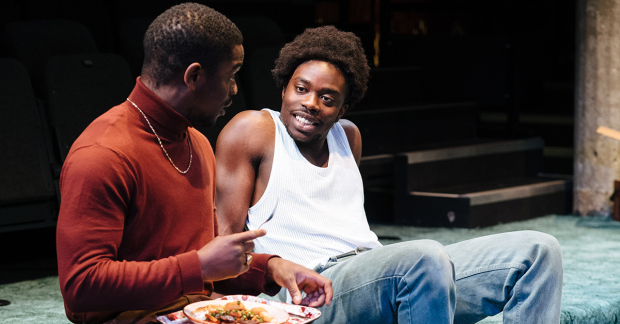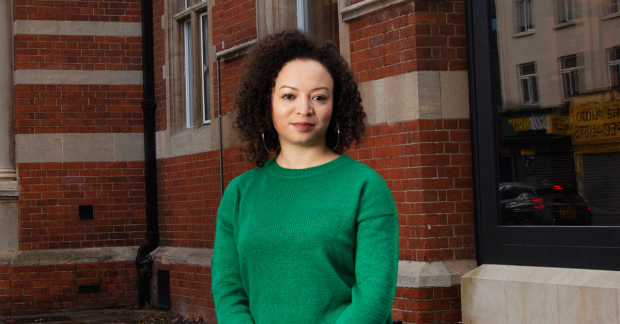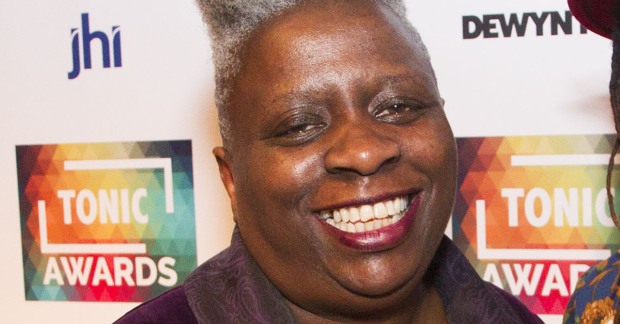Review: Strange Fruit (Bush Theatre)

© Helen Murray 2019
The Bush Theatre's three-year Passing the Baton initiative – which brings back to the stage plays written by trail-blazing writers of colour – is a brilliant idea. It pays tribute to artists on whose shoulders the next generation of black British theatre-makers have stood with pride, and in this 1980 play by Caryl Phillips it uncovers a difficult, knotty but always engrossing work.
Its most striking quality, in a tightly focused and brilliantly acted production, is its uncompromising honesty. It takes a family – Vivian and her two sons Errol and Alvin – and shows them being torn apart by the twin and conflicting demands of British and Caribbean culture, by the sense that they don't belong anywhere and that their life is always divided.
Vivian has embraced what the play defines as whiteness in her assumption of the demands of British society, her fear of doing the wrong thing, her belief that if only her boys can get a good education then they will be able to make their way in the world, proud and strong. Errol has adopted the mantra of black revolution, fighting for black power through strikes and radical action. Alvin, who has just returned from a trip to the Caribbean, which was not the expected paradise, is torn between them. "I need help but the only people who can help me are either too busy playing white or too busy playing black," he shouts, in agony.
The play is passionate and heartfelt, but it is also long, prolix and makes its effects through too many massive speeches. It also relies on a plot twist which in its melodramatic flourish undoes much of the careful realism of what has gone before. I wasn't absolutely sure, either, about the decision to make the set (design by Max Johns) a stylised pit, covered in green swirled carpet, because it has the effect of distancing the dialogue and means that a vital bit of action takes place virtually offstage.
It is also a play that is extraordinarily difficult for a woman to watch. Perhaps because it is directed by Nancy Medina, the characters who spring most vividly to life are the women. In Rakie Ayola's terrific performance, Vivian emerges as a torrent of nervous concern, someone who has tied herself into knots to build a better life for her sons, who has suffered for their sake. The single most powerful moment of the play comes when she describes to her tough-talking friend Vernice (Debra Michaels, also wonderful) the cruelty of the racism she suffered when she first arrived in the UK.
Yet she is under constant attack from her children, as is poor white Shelley (Tilly Steele) who has made the mistake of falling in love with Errol (Jonathan Ajayi). The passive way Steele's gently hopeful Shelley blenches under his verbal and physical attacks is difficult to witness and it makes Errol a character with whom it is hard to sympathise, even though Ajayi does his best to make us see how lost and frightened he is. As Alvin, Tok Stephen is also powerful in his suffering. The visceral nature of their disappointment and their hurt hangs heavily in the air. The commitment of their playing makes Phillips' words seem urgent and admonitory. A very necessary and excellent baton-passing revival.















